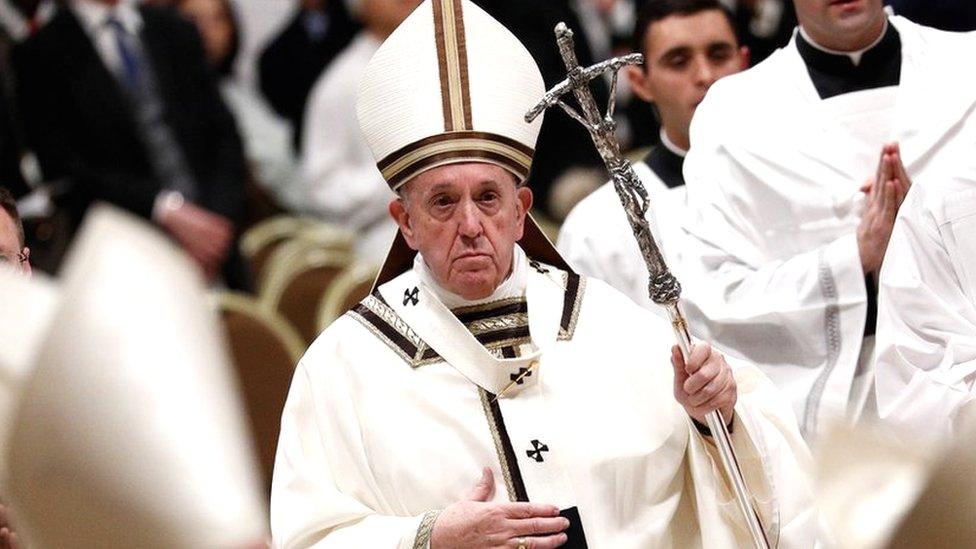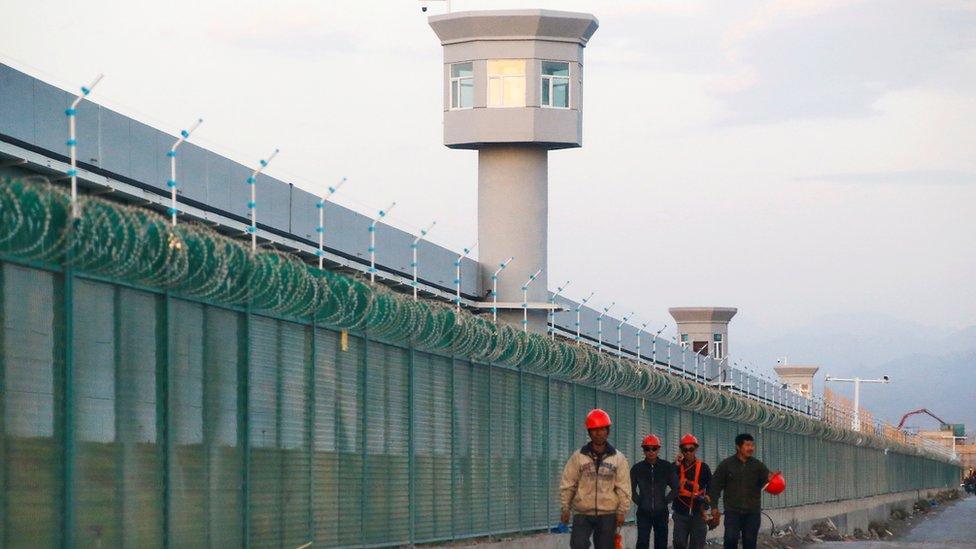Uighurs: China rebuffs Pope's criticism as 'groundless'
- Published

Pope Francis criticised the treatment of 'the poor Uighurs'
Beijing has dismissed Pope Francis's criticisms of its treatment of China's Muslim Uighur minority in Xinjiang.
It came after the head of the Roman Catholic Church joined a growing group of international voices, describing the Uighurs as "persecuted" in a new book.
It is believed that the Chinese government has detained up to a million Uighurs in what the state defines as "re-education camps".
China's foreign ministry said the Pope's remarks were "groundless".
In his book Let Us Dream: The Path to A Better Future, Pope Francis writes that "I think often of persecuted peoples: the Rohingya, the poor Uighurs, the Yazidi".
It is the first time he mentions the Uighurs in that context.
Chinese foreign ministry spokesman Zhao Lijian responded saying Beijing "has always protected the legal rights of ethnic minorities equally".

China says the camps are a necessary measure against terrorism
Beijing is believed to have detained more than one million people from Xinjiang in recent years, citing terrorism and security risks.
It has also been alleged they are forcing Uighur women to be sterilised or fitted with contraceptive devices, apparently to control the population growth.
China initially denied the existence of the camps, before saying the internment sites provide job training and education.
The BBC visits the camps where China’s Muslims have their "thoughts transformed"
The Uighurs are a mostly Muslim Turkic ethnicity who regard themselves as culturally and ethnically close to Central Asian nations.
The majority live in China's Xinjiang province, where they number about 11 million people, or around 45% of the population.
Observers say that over the years, central government policies have gradually curtailed the Uighurs' religious, commercial and cultural activities, as large numbers of majority Han Chinese have been encouraged to move to the region.

You may also be interested in...
Uighur model sends rare video from Chinese detention
- Published24 September 2020

- Published15 September 2020
